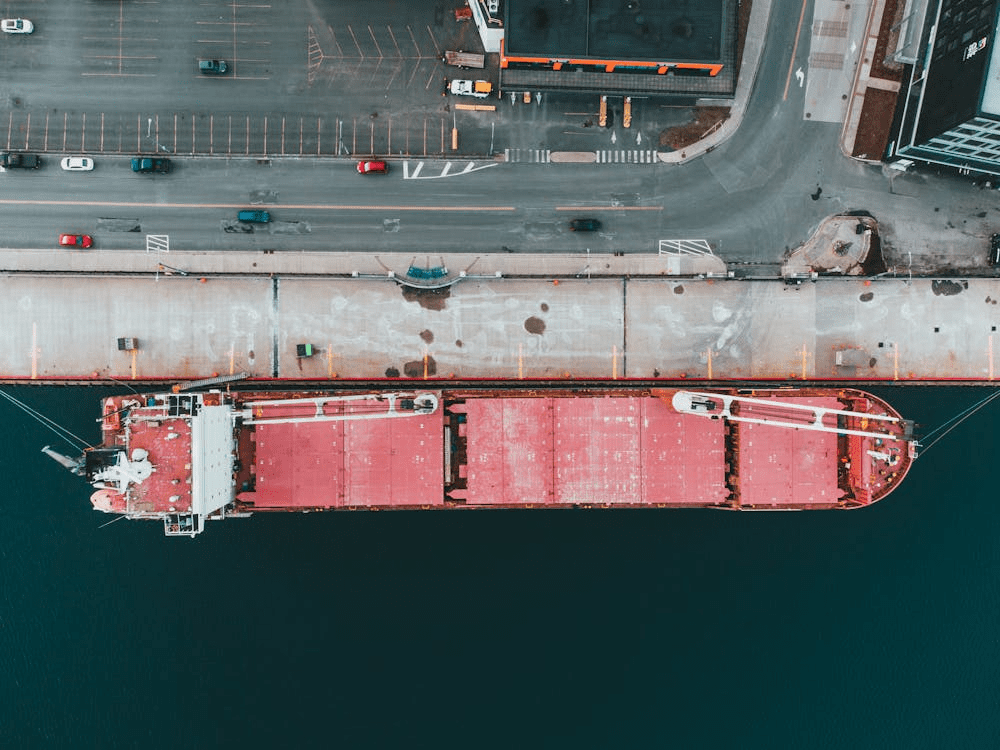The shipping industry quietly powers global trade, moving over 80% of the world’s goods. Yet, this vital sector faces growing challenges, rising fuel costs, stricter environmental regulations, and safety threats like piracy. In the midst of these struggles, artificial intelligence (AI) is proving to be a game-changer.
Alexander Korostin, a technologist at the forefront of innovation, is applying AI to transform maritime logistics. His solutions optimize shipping routes, cut fuel consumption, and drive sustainability, offering a path to a more efficient and environmentally friendly future for the industry.
The Shipping Industry: Backbone of Global Trade
Shipping is at the heart of global commerce, responsible for moving over 90% of the world’s goods by volume, according to the International Maritime Organization (IMO). Despite its crucial role, the industry faces significant challenges.
Rising fuel costs are a constant concern, forcing companies to seek ways to reduce consumption without compromising performance. Meanwhile, environmental regulations are becoming stricter, with the IMO implementing measures like the sulfur emission cap to reduce ships’ carbon footprints. On top of these, safety risks such as piracy and unpredictable weather create additional hurdles for maritime operations.
In this complex environment, AI offers a powerful solution. By analyzing vast datasets, AI can help optimize shipping routes in real-time, improving efficiency, reducing costs, and lowering environmental impact. This is where innovators like Alexander Korostin are making a difference, using AI to drive transformation in the maritime logistics sector.

Image by Alexander Korostin on LinkedIn
How AI is Revolutionizing Maritime Logistics
AI is more than just a buzzword in the shipping industry; it’s a game-changer. Unlike traditional methods, AI analyzes vast amounts of data to make smarter, faster decisions about shipping routes. It considers factors such as weather patterns, ocean currents, and fuel efficiency to optimize every journey.
A key tool in this AI-driven revolution is the Automatic Identification System (AIS), which tracks ships in real time by providing data on their location, speed, and course. By combining AIS data with big data analytics, AI can identify the most efficient routes, reducing fuel consumption and travel time.
Imagine AI algorithms that not only avoid bad weather but also optimize fuel savings while ensuring vessels steer clear of emission-heavy areas like Sulphur Emission Control Areas (SECA). This isn’t a distant vision; it’s happening today. With AI, shipping companies can reduce fuel consumption, minimize delays, and meet environmental standards more effectively.
Key Benefits of AI in Maritime Logistics
AI is transforming maritime logistics in several key ways:
Cost Reduction
Fuel costs are one of the most significant expenses for shipping companies. AI-powered route optimization helps vessels avoid inefficient paths, significantly reducing fuel consumption. Studies show that AI can cut fuel costs by up to 10%, helping companies save money and stay competitive in a rapidly evolving market.
Safety Improvements
Safety is a top priority in maritime operations, and AI enhances it in real-time. By continuously monitoring weather patterns, piracy zones, and other hazards, AI can suggest safer routes. For example, if a piracy hotspot is detected, AI can reroute the ship, ensuring the safety of both crew and cargo. It’s like having an invisible safety net, constantly adjusting to keep operations secure.
Environmental Impact
The shipping industry has historically had a large carbon footprint, but AI offers a solution to reduce its impact. By optimizing routes, AI minimizes fuel consumption, which lowers emissions. These savings help companies meet environmental regulations and align with global sustainability goals, significantly reducing their ecological footprint.
Real-World Applications and Industry Impact

Image by Erik Mclean on Pexels
The work Alexander Korostin is doing at Shipnext, a maritime logistics company in Belgium, highlights how AI can transform the shipping industry. Korostin has developed AI algorithms that analyze historical AIS data to optimize vessel routes, factoring in weather, fuel consumption, emissions, and piracy risks.
The results are impressive. Shipnext has significantly reduced fuel consumption, improved route efficiency, and helped companies meet environmental regulations, all while minimizing delays and boosting operational reliability. This combination of innovative technology and real-world impact positions Shipnext as a leader in maritime logistics.
Korostin’s work has earned recognition in the industry. He has shared his findings at major conferences, including the “Science and Information Technologies in the Modern World” in Athens and the “Modern Perspectives of Science and Economic Progress” in Vilnius. His contributions to AI and maritime logistics are widely cited in academic research, solidifying his role as a key innovator in the field.
The Future of AI in Maritime Logistics
The future of AI in maritime logistics is full of potential. As AI technology continues to advance, its ability to optimize shipping routes, cut costs, and reduce environmental impact will only grow. In the near future, AI could integrate additional data sources, such as satellite imagery and real-time sensor data, allowing for even more precise and efficient route planning.
AI’s impact won’t be limited to maritime logistics. The same principles of AI-driven optimization can extend to air freight, supply chain management, and even autonomous shipping vessels. In the long term, AI has the potential to reshape the entire transportation industry, making it more efficient, safer, and sustainable.
Conclusion

Image by aboodi vesakaran on Unsplash
The shipping industry is at a turning point, facing challenges such as rising fuel costs, environmental pressures, and safety risks. However, AI-powered solutions offer a clear path forward. By optimizing routes, reducing fuel consumption, improving safety, and lowering emissions, AI can significantly cut operational costs and increase efficiency.
Innovators like Alexander Korostin are leading the way, demonstrating how AI can revolutionize maritime logistics. As AI technology continues to evolve, its potential to reshape global shipping is vast. Companies that adopt these advancements will be better positioned to meet the demands of a rapidly changing world and ensure a more sustainable future for global trade.
To learn more about how AI is transforming maritime logistics, explore the Shipnext platform and discover how AI can optimize your shipping operations.



































